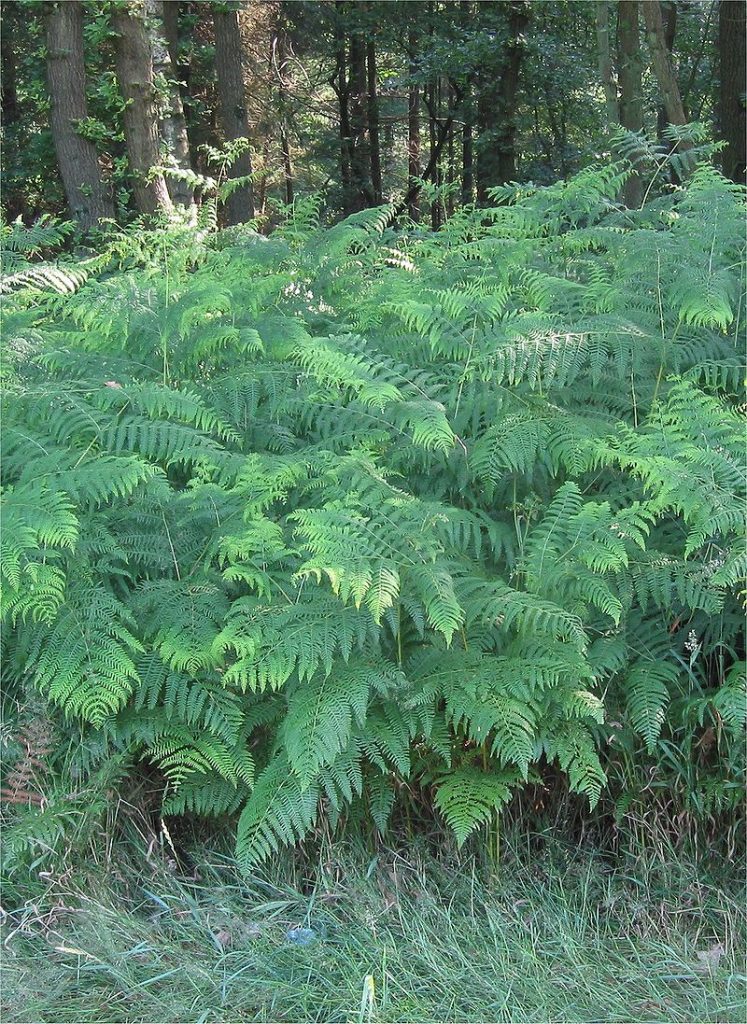
Also known as eagle fern, bracken is a herbaceous perennial and a member of the Dennstaedtiaceae family that includes 10 genera and 240 species of ferns. It is one of the most abundant ferns in the world and native to Europe, Eastern Asia, and most of North America where it grows in a variety of habitats including open woodlands, meadows, savannas, thickets, marshes, burned areas and roadsides. The fronds are used as thatching for houses, for fodder, and historically as a vegetable in Korea, Japan, Russian Far East, and parts of China although they contain carcinogens. Photo Credit Rasbak Wikimedia Commons
Description: The plant grows 3-4′ tall and has long, blackish, branching horizontal rhizomes that send up brownish, scaly fiddleheads that are rolled tightly inwards from the tip and bend over at the top like a shepherd’s crook. The mature fronds are coarse, broadly triangular, and 2-3 times pinnately compound. Yellowish green to green in color, the mature fronds of plants grown in the shade may be almost horizontal. The margins of the leaflets are rolled under and those of fertile fronds bear the reproductive structures. The fronds are sensitive to the cold and usually die back at the time of the first frost.
Poisonous Properties: All parts of the the plant are poisonous to livestock including cattle, sheep, and horses, although the sheep are more resistant than the other two animals. The fiddleheads are most appealing to humans and present the greatest risk to them. Several toxic compounds are found in bracken: 1. prunasin, a cyanide-producing glycoside in some but not all bracken populations 2. thiaminase, an enzyme highly concentrated in in the rhizomes and fiddleheads, that can cause thiamine deficiency in livestock by destroying thiamine reserves, and 3. two carcinogens, quercetin and kaempferol, that have caused intestinal and bladder cancer in rats. Fiddleheads contain high concentrations of carcinogens and humans can also ingest these carcinogens in the milk of cows that graze on bracken. The danger of consuming bracken by livestock is well documented. Acute bracken poisoning in humans is unlikely but a long term danger of cancer is possible.